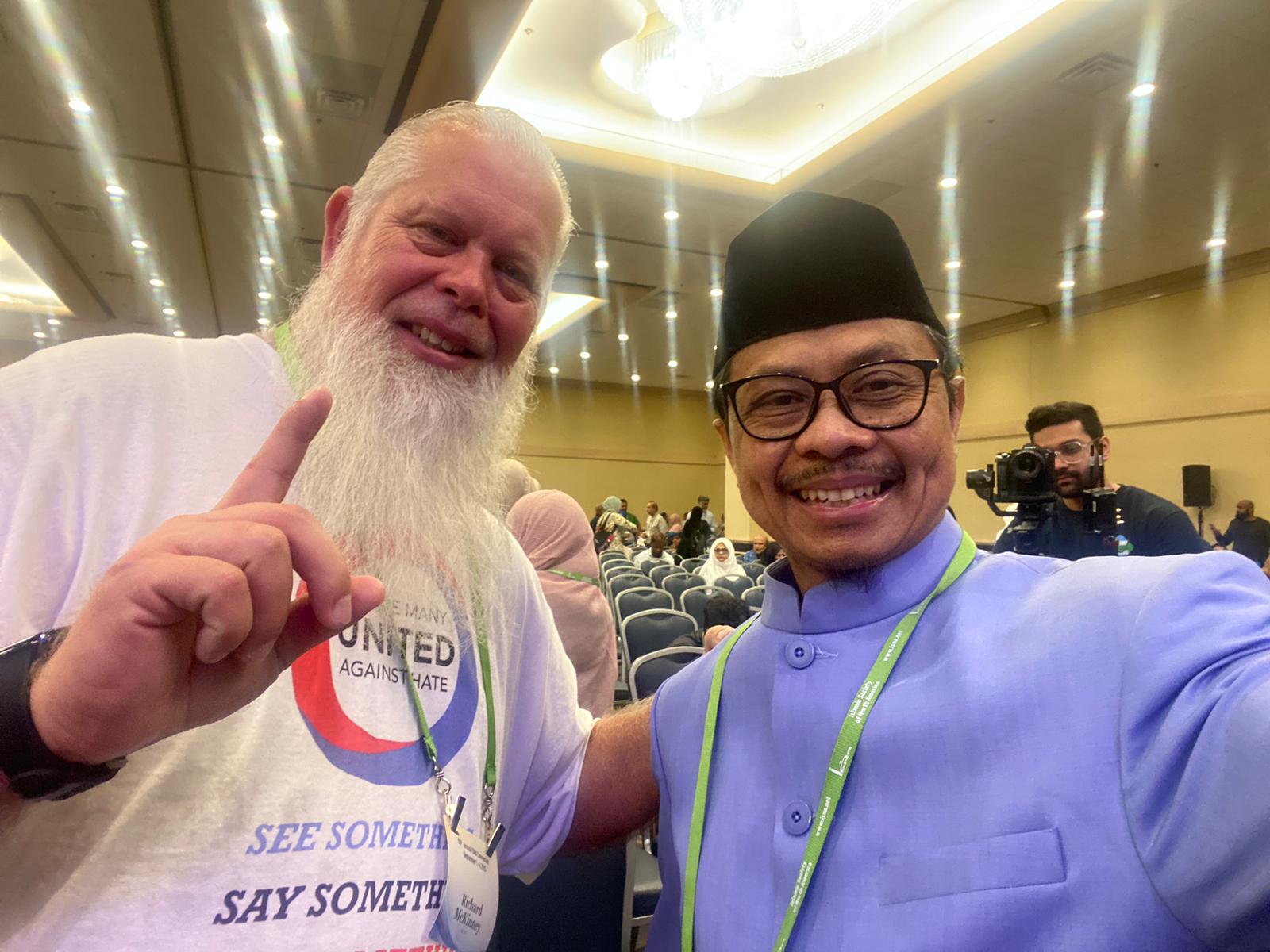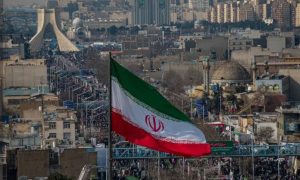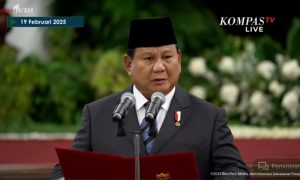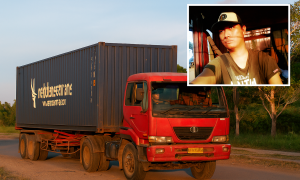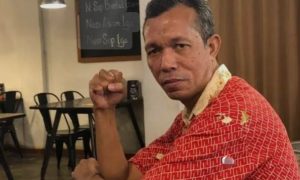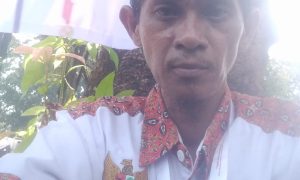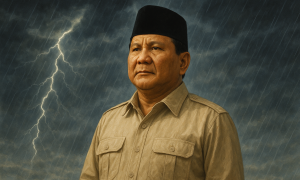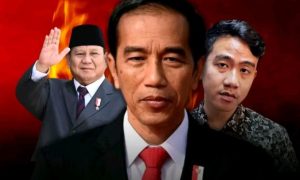Nusantarakini.com, Manhattan City –
The tragic brutal massacres of Palestinians that take and continue to take place in Gaza should open our eyes into many realities that probably have been forgotten by us. The worldly life conveniences have blinded us from seeing the many wisdoms of life. And now the Gaza tragedy reopens our eyes to see and learn lessons from it.
Here are some lessons learned from the tragedy in Gaza:
First, it teaches us that faith is the source of strength, hope and optimism. No matter how big the magnitude of the challenge, a believer will be strong to continue the walk toward destiny.
Through the lense of faith we will come to know that challenges in life are in fact the path of faith itself. The faith will grow and be mature through challenges of life. Allah says: “Do people think that they will be let go merely by saying: We believe, that they will be left without being put to the test? We certainly tested those before them. And in this way Allah will clearly distinguish between those who are truthful and those who are liars” (ch. 29: 2-3).
In fact, challenges are a part of the process to Jannah. As Allah said: “Do you think you will enter paradise without Allah proving which have truly struggled for His cause and patiently endured”? (Ch. 3: 142).
It is undeniable that challenges are painful. As humans we may and have to feel pain and even complain about it. Allah told us in the Qur’an that we may have the same pain as the disbelievers have in times of suffering. Allah differentiate ours from theirs by saying: “if you are suffering, they too are suffering. But you can hope to receive from Allah what they can never hope for. (Ch. 4: 104).
Such a hope the believers have with certainty is that they believe at the end of the day, no matter how difficult and painful it might be, the promised victory is coming. Allah told us about the Prophet and his companions: “They were afflicted with suffering and adversity and were so violently shaken that even the Messenger and the believers with him cried out: when will God’s help will come? Indeed, God’s help is always near (Ch. 2: 214).
Second, it teaches us that the world we live in is far from being perfect. This world (life) is full of injustices, and hypocrisy. And those oppressive people often seem to be (apparently) better off.
The example is now clearly displayed. The world, particularly those in the West, are proud of the “so called” Universal values of freedom, human dignity, justice, etc. but when it comes to the Palestinians, seemingly those values are not for them.
As we may all know, the only nation on the face of the Earth that does not have freedom nor a sovereign state are the Palestinians. And we know that they have every single requirement to be a nation with their own sovereign state; people, territory, language, etc.
This reminds us of several things. Firstly, the place of reward is not here in this world. It will be sometime, somewhere. Allah mentions in the Qur’an: “And you will only receive your full reward on the Day of Judgment” (Ch. 3: 184).
Secondly, and more importantly, it reminds us that Justice will be served at the end of the day. Allah who is Just is the Master of the Day of Judgment. We remind ourselves about this at least 17 times daily: “Allah, The Master of the Day of Judgment” (Ch. 1: 3).
Thirdly, it teaches us that the meaning of life is not about how long it last, nor how convenient or luxurious it is. Instead, it is about values.
This mass killings in Gaza that have taken over 20,000 lives, among them more than 5000 children, remind us about our lives. It reminds us to reflect for a moment, what is about our life and why and where the direction of this life.
Those children lived their lives briefly. But their lives have been meaningful. They lived theirs for a noble purpose and mission. For their dignity and freedom. This noble purpose of life makes their life meaningful and valuable. And for that reason the lived this temporary life with dignity. And that’s what “shahadah” is.
Allah told us: “never think of those who were martyred in the cause of Allah as dead. In fact, they are alive with their Lord, well provided for. Rejoicing in God’s bounties and being delighted for those yet to join them” (Ch. 3: 179-170).
Fourthly, It teaches us that this life is about the struggle between the haqq (the truth) and baatil (the falsehood) and between al-adl (the justice) and al-zhulm (injustice).
When Allah sent Adam down to this Earth He reminded him: “descend as enemies to each other” (Ch. 7: 24).
Then Allah stressed to him once again: “surely satan is an enemy to you, so take him as an enemy” (Ch. 35: 7).
Hence it is clear that we are at war against a clear enemy. The question that needs to be asked is how do we face that enemy?
Islam provides an answer to the question. That the best way to face the enemy is through self empowerment. It’s important to pay attention to what the enemy is doing, but it’s more important to pay attention to ourselves, asking what we must do to face the enemy.
The Gaza tragedy teaches one very clear lesson that the power of our opponents comes not because they are powerful, but rather because of our weaknesses. And one of the weakness of this Ummah is the lack of unity.
Allah reminded us: “and obey Allah and His messenger and do not dispute with one another, or you would be discouraged and weakened” (Ch. 8: 46).
Fifthly: Palestine teaches us that justice is the foundation of peace and tranquillity in life. No genuine peace will take place when justice is not equal for all; without that peace is impossible
In Islam, Al-‘adl (justice) and Al-ihsan (kindness) which includes love, compassion, etc., are connected to each other. Allah in the Qur’an underlined: “Indeed, Allah commands justice and kindness” (Ch. 16: 90).
It’s been a common knowledge that in the western world Muslims are often accused of being violent, that Muslims often rise to resist. But they fail to acknowledge that their resistance is not for the purpose of violence, but it is instead for the purpose of their right for justice to be served.
In Islam justice itself is considered the most important part of righteousness. In fact it is closest to righteousness itself. Allah said: “Be just. This is closer to righteousness” (Ch. 5: 8).
Finally, the Gaza tragedy also teaches us that we are facing a multi layered battles. One of the most severe battles we are facing is the battle of building images. Allah reminds in the Holy Quran: “They wish to extinguish the light of Allah with their mouths. But Allah will certainly perfect His light, even to the dismay of the disbelievers” (Ch. 61: 8).
The fact that Islamophobia is rising in the West, particularly in US these days, is a clear sign that they have succeeded in creating the perception that Muslims are the perpetrators of all that’s taking place in Palestine. They have succeeded in painting themselves as victims and Muslims as the perpetrators of violence.
Therefore we must be aware of the nature of this war, so that we can and must prepare ourselves to face it with a clear mind and proper understanding. InshaAllah! [mc]
Manhattan City, 24 November 2023.
(Khutbah delivered at UN on November 25, 2023).
*Imam Shamsi Ali, President of Nusantara Foundation.

